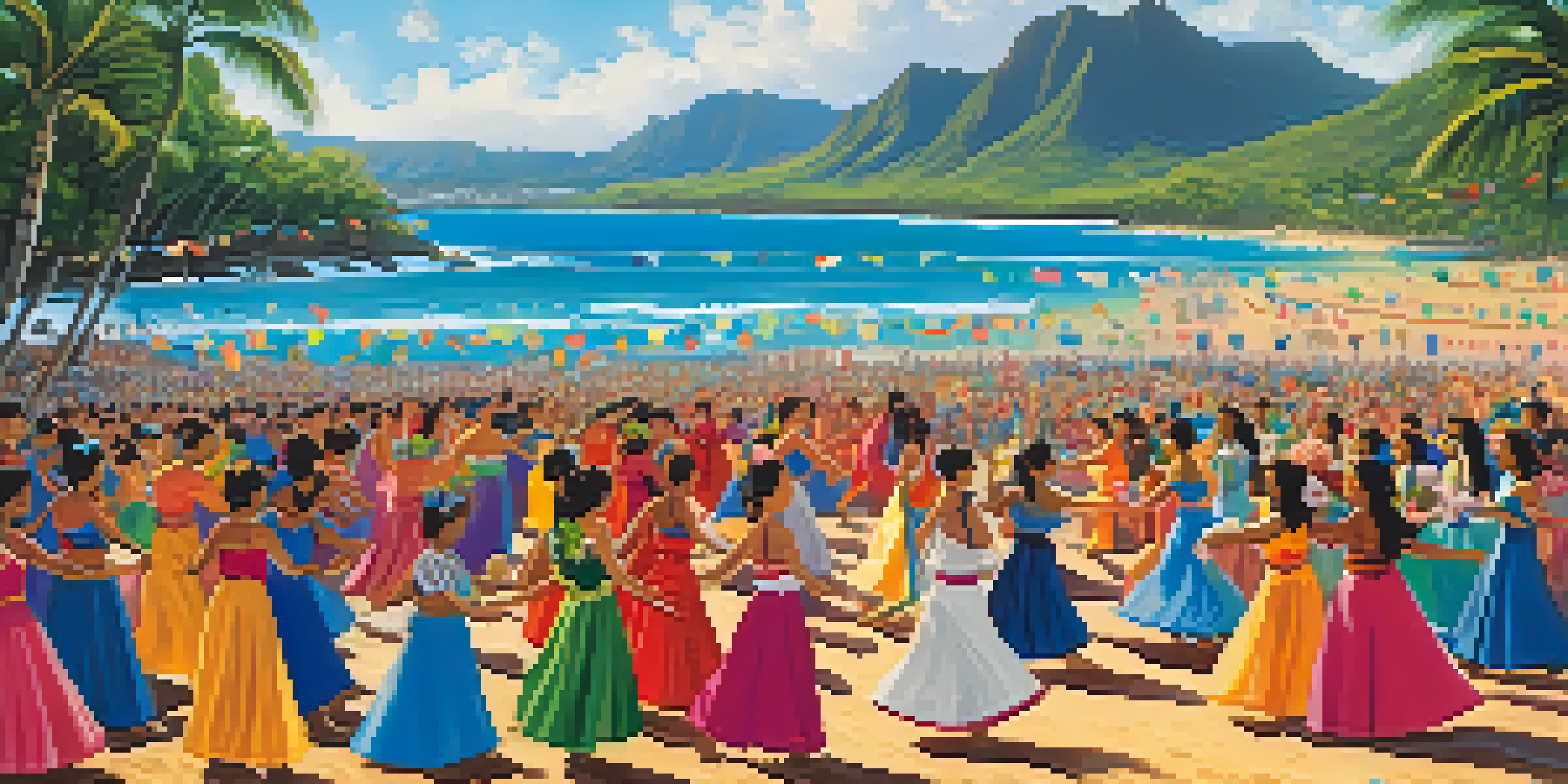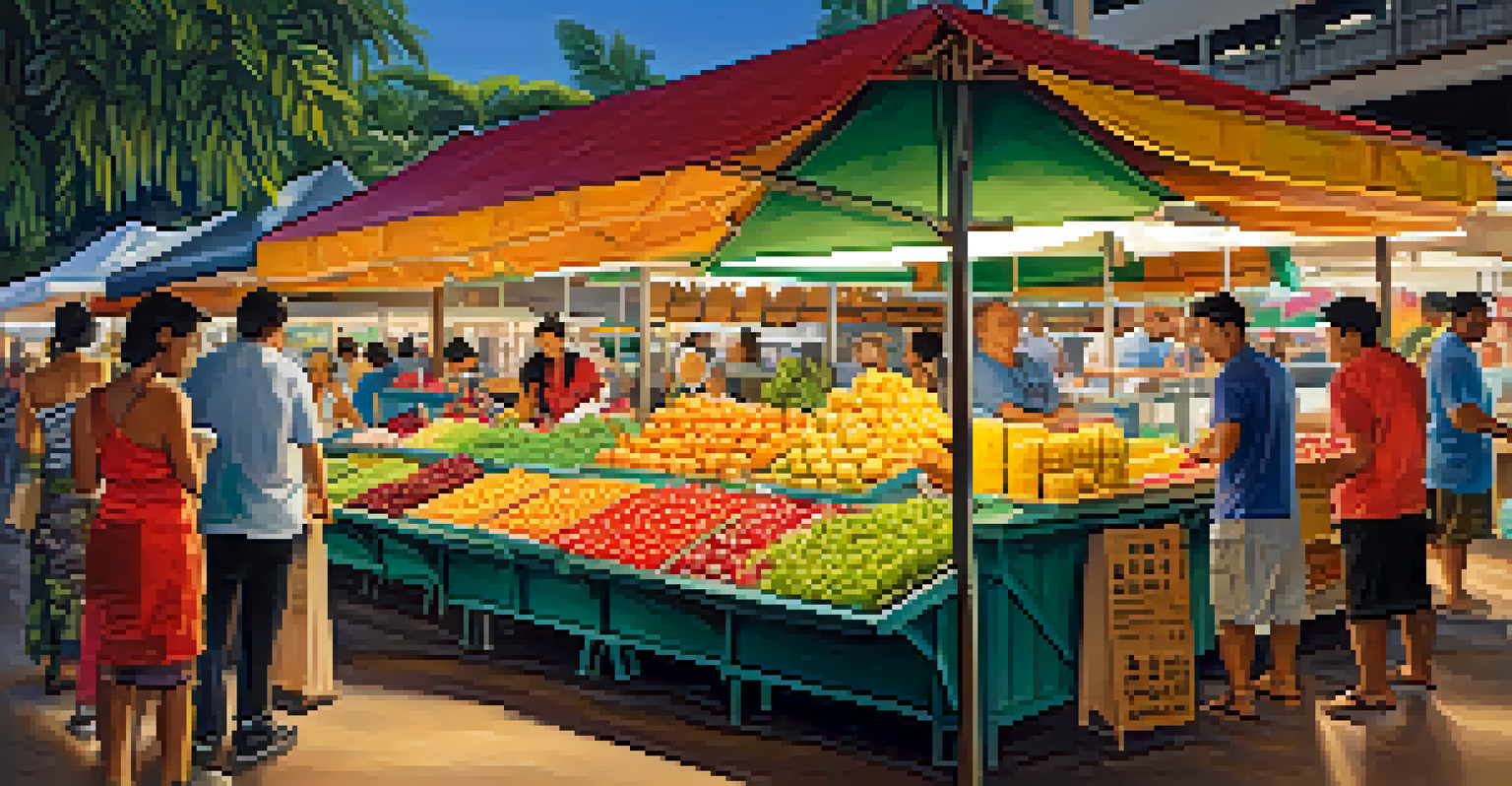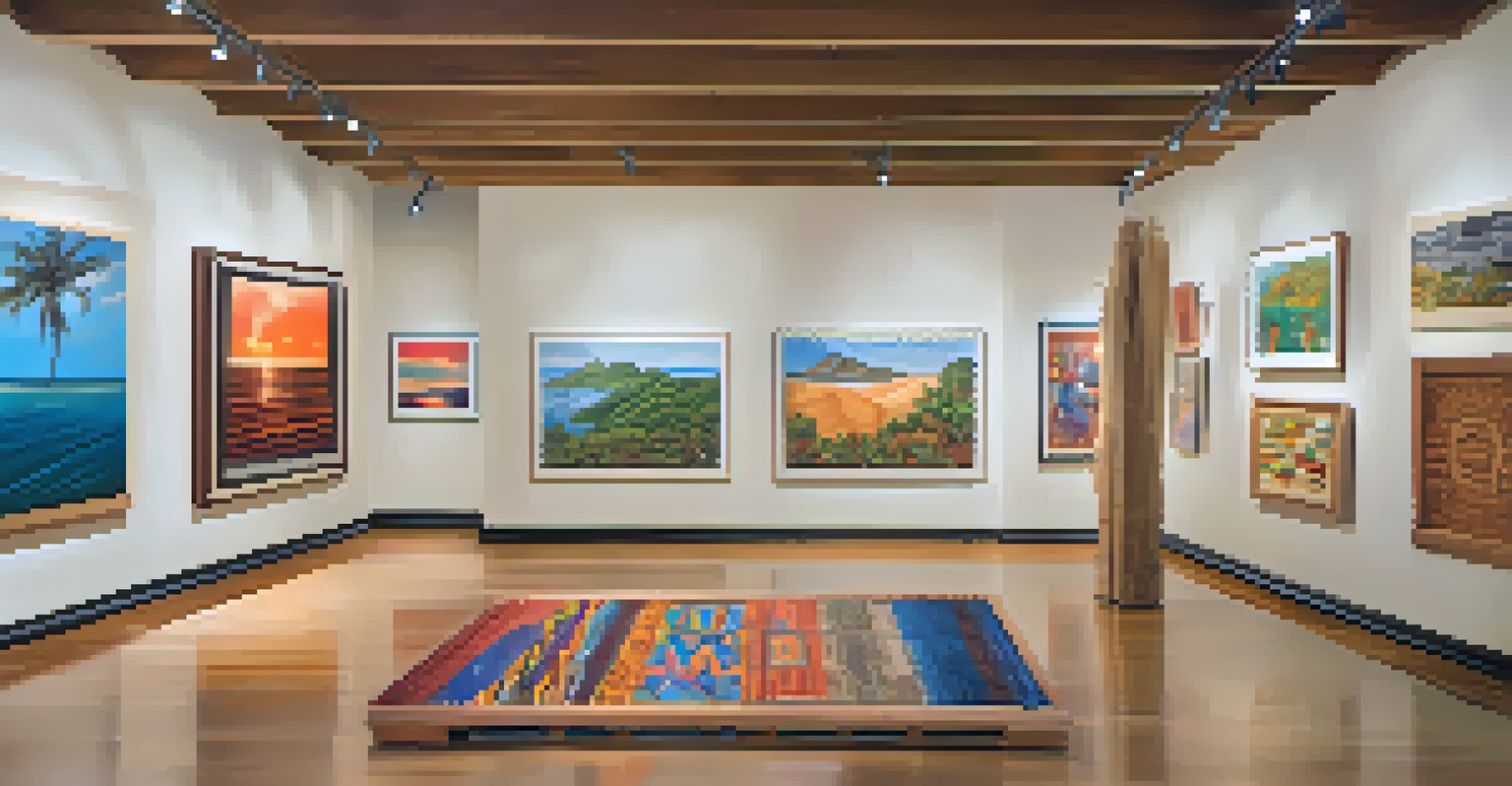Honolulu as a Cultural Exchange Center for Pacific Islands

Honolulu: The Heart of the Pacific Islands
Honolulu, nestled on the island of Oahu, serves as a vibrant hub for cultural exchange among the Pacific Islands. Its strategic location makes it a natural meeting point for various cultures, offering a rich tapestry of traditions and practices. This diversity is not just a backdrop; it's woven into the very fabric of the city's daily life, from food to festivals.
Culture is the widening of the mind and of the spirit.
The city’s multicultural population fosters an environment where different customs can thrive and evolve. Residents and visitors alike celebrate a variety of cultural events, creating opportunities for dialogue and understanding. This melting pot of influences makes Honolulu a unique place where Pacific cultures come together.
Moreover, the city's history as a port city enhances its role as a cultural crossroads. Historically, it has been a stopover point for traders and travelers, leading to a blend of Polynesian, Asian, and Western influences that still resonate today.
Historical Significance of Honolulu in the Pacific
Honolulu's historical significance cannot be overstated; it has been a key player in the Pacific region for centuries. The arrival of Polynesian voyagers established a foundation for cultural exchange that continues to this day. Their navigational prowess and deep connection to the ocean set a precedent for the way island cultures interact.

In the 19th century, Honolulu became a focal point for missionaries, traders, and immigrants, each group contributing to the cultural landscape. This influx of different peoples introduced new ideas and practices, enriching the local culture. The result is a blend of traditions that reflect both indigenous and foreign influences.
Honolulu: A Cultural Melting Pot
Honolulu's diverse population fosters a vibrant environment where various Pacific cultures thrive and interact.
Today, this historical backdrop creates an environment ripe for cultural exploration. Visitors can experience this rich history through museums, cultural centers, and historical sites that tell the story of the Pacific Islands' interconnectedness.
Cultural Events and Festivals Celebrating Diversity
One of the most engaging aspects of Honolulu is its cultural events and festivals that celebrate diversity. Events like the Honolulu Festival and the Aloha Festivals bring together people from various Pacific cultures to share their traditions. These gatherings not only showcase art, dance, and music but also promote understanding and appreciation among attendees.
Diversity is the one true thing we all have in common. Celebrate it every day.
During these festivals, you might find yourself mesmerized by hula performances or the tantalizing flavors of traditional island cuisine. Such experiences create bonds between different cultures, fostering a sense of community and shared heritage. It's a wonderful reminder that despite our differences, there is much we can celebrate together.
Moreover, these events encourage participation, inviting locals and tourists to join in the festivities. This hands-on approach allows individuals to immerse themselves deeply in the culture, making memories that last a lifetime.
Culinary Exchange: A Taste of the Pacific
Honolulu is also a culinary beacon, showcasing the rich flavors of the Pacific Islands. The city’s food scene is a delightful fusion of traditional Hawaiian dishes and influences from Asia and beyond. From poke bowls to loco moco, the culinary landscape reflects the diverse cultural heritage that defines the region.
Local markets and food festivals further enhance this culinary exchange, allowing visitors to sample a wide array of dishes. Food trucks and restaurants serve not only local favorites but also international cuisine, creating a melting pot of flavors. This culinary adventure is one of the best ways to connect with the cultures of the Pacific Islands.
Festivals Celebrate Pacific Heritage
Cultural events like the Honolulu Festival bring together different traditions, promoting understanding and community.
Additionally, cooking classes and workshops offer opportunities for people to learn about and prepare traditional dishes. These experiences foster a deeper appreciation for the ingredients and techniques that make Pacific cuisine so unique.
Art and Crafts: A Window into Pacific Cultures
Art and crafts in Honolulu serve as a vibrant window into the cultures of the Pacific Islands. Galleries and artisan markets showcase the work of local artists who draw inspiration from their heritage. From traditional weaving to contemporary paintings, these artworks tell stories that resonate with both locals and visitors.
The exchange of artistic ideas is evident in the collaborative projects that often emerge from the local art scene. Artists from various backgrounds come together to create pieces that reflect their shared experiences and cultural narratives. This collaboration not only enriches the artistic community but also strengthens cultural ties.
Furthermore, workshops and classes allow individuals to explore these art forms hands-on. Engaging in traditional crafts, such as lei-making or tattoo art, provides a deeper connection to the cultures represented in Honolulu.
Educational Initiatives Promoting Cultural Awareness
Honolulu's role as a cultural exchange center is further bolstered by its educational initiatives aimed at promoting cultural awareness. Schools and universities often incorporate Pacific studies into their curricula, encouraging students to explore the rich history and traditions of the region. This educational focus helps cultivate a sense of respect and appreciation for diverse cultures.
Moreover, cultural organizations and community groups offer workshops and seminars that delve into various aspects of Pacific Island cultures. These programs provide valuable insights into the customs, languages, and histories that shape the identities of these communities. By making this knowledge accessible, Honolulu fosters an environment of learning and growth.
Culinary Diversity in Honolulu
The city's food scene reflects its multicultural heritage, offering a fusion of traditional Hawaiian dishes and international cuisine.
The emphasis on education creates a ripple effect, encouraging individuals to engage with and respect different cultures. As people gain a deeper understanding of Pacific Island cultures, they become ambassadors for cultural exchange in their own communities.
The Future of Honolulu as a Cultural Exchange Center
Looking ahead, Honolulu's future as a cultural exchange center appears promising. The city's commitment to preserving and celebrating its diverse heritage ensures that it remains a dynamic hub for cultural interactions. With ongoing initiatives to promote understanding and collaboration, Honolulu is set to thrive as a beacon of cultural exchange in the Pacific Islands.
As global connectivity increases, there will be even more opportunities for Honolulu to strengthen its role as a cultural bridge. The city's ability to embrace innovation while honoring tradition will be crucial in navigating this evolving landscape. By fostering an inclusive environment, Honolulu can continue to attract visitors and residents who value cultural exchange.

Ultimately, the spirit of aloha—a deep sense of love and respect—will guide Honolulu in its journey forward. As the city embraces its role as a cultural exchange center, it will undoubtedly inspire future generations to appreciate the beauty of diversity.